1. Scope
The new rules apply if you place on the EU market or export from the EU: palm oil, cattle, soy, coffee, cocoa, timber and rubber as well as derived products (such as beef, furniture or chocolate). The rules apply to any quantity of product, large or small.
2. Responsibility for appraisal
Due diligence must be done to ensure products are deforested free. They come from land that has not been deforested after December 31, 2020. They must also comply with the laws of the country where they are produced.
3. Traceability
Operators must collect information, documents, data proving that the product is not deforested and legal, such as geographic location coordinates, quantity, country of production, etc.
4. Appraisal registration system
The verification report must be submitted electronically to the deforestation register created by the European Commission. These declarations will be checked in the register and by the competent authorities of the Member States.
EU due diligence registry website: https://green-business.ec.europa.eu/deforestation-regulation-implementation/deforestation-due-diligence-registry_en
5. Steps to take
5. 1 – Planting source
Goods must be legally produced and not deforested. Geolocation data of the production area must be collected.
Goods produced illegally, on land deforested after 31 December 2020 or that are not traceable, do not comply with regulations and cannot be placed on the EU market. Compliant goods must be stored separately from those of unknown origin or that do not meet standards.
5. 2 – Business and transportation
Legal and deforestation-free goods must be separated from other goods during trade and transport. It is not allowed to mix standard and non-standard goods or goods of unknown origin. In such cases, the entire consignment will not be compliant and cannot be placed on the EU market.
5. 3 – Import
Before placing products on the EU market, importers must carry out due diligence.
The importer must also submit an Assessment Statement and will receive a reference number (and security token), which must be declared on the import customs declaration.
Only compliant products can be placed on the EU market. The operator can place a product on the EU market once the product has been granted import permission by the customs authorities.
5.4 – Production
Large EU manufacturers of goods (e.g. chocolate manufacturers) must check that due diligence has been carried out at the beginning of the supply chain.
Large manufacturers must check the importer's Declaration of Classification (DDS) of the goods and submit their own DDS for their products, using the upstream DDS reference number. The operator will then receive a new DDS reference number and a security token.
5.5 – Selling or exporting products
Before selling products on the EU market, major retailers must check that due diligence has been carried out at the beginning of the supply chain.
The retailer must check the DDS upstream in the supply chain and submit their own DDS based on all previous reference numbers. The trader will then receive a new DDS reference number and a security token.
Small businesses (SMEs) are not required to inspect or submit audit reports for audited products in the supply chain.
Please refer to the two accompanying specific EU guidelines: Implementation guidance, see here . Frequently asked questions, see here .
Source: https://moit.gov.vn/tin-tuc/thi-truong-nuoc-ngoai/huong-dan-thuc-hien-quy-dinh-chong-pha-rung-eudr-cua-eu.html



![[Photo] Discover the beautiful scenery of Wulingyuan in Zhangjiajie, China](https://vphoto.vietnam.vn/thumb/1200x675/vietnam/resource/IMAGE/2025/5/11/1207318fb0b0467fb0f5ea4869da5517)

![[Photo] National Assembly Chairman Tran Thanh Man attends the Party Congress of the Committee for Culture and Social Affairs](https://vphoto.vietnam.vn/thumb/1200x675/vietnam/resource/IMAGE/2025/5/11/f5ed02beb9404bca998a08b34ef255a6)
![[Photo] National Assembly Chairman works with leaders of Can Tho city, Hau Giang and Soc Trang provinces](https://vphoto.vietnam.vn/thumb/1200x675/vietnam/resource/IMAGE/2025/5/11/c40b0aead4bd43c8ba1f48d2de40720e)
















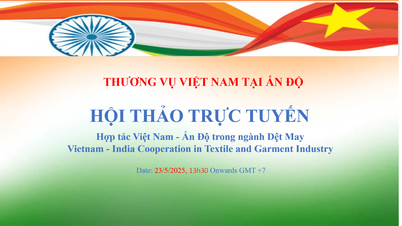
![[Photo] Prime Minister Pham Minh Chinh chairs the fourth meeting of the Steering Committee for Eliminating Temporary and Dilapidated Houses](https://vphoto.vietnam.vn/thumb/1200x675/vietnam/resource/IMAGE/2025/5/11/e64c18fd03984747ba213053c9bf5c5a)







































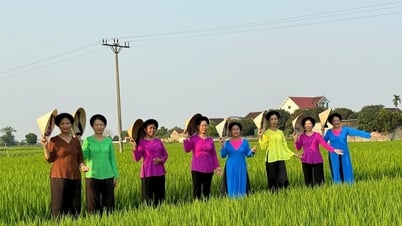

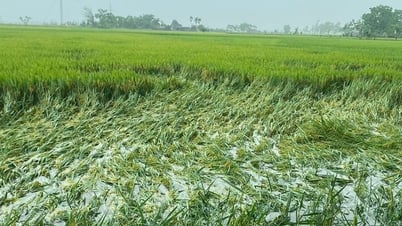




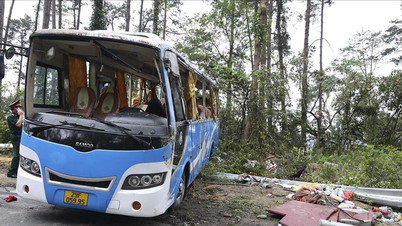

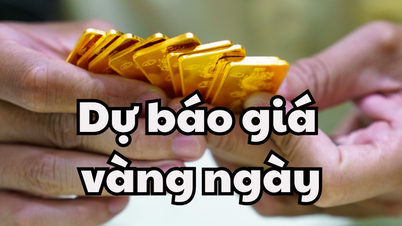











Comment (0)